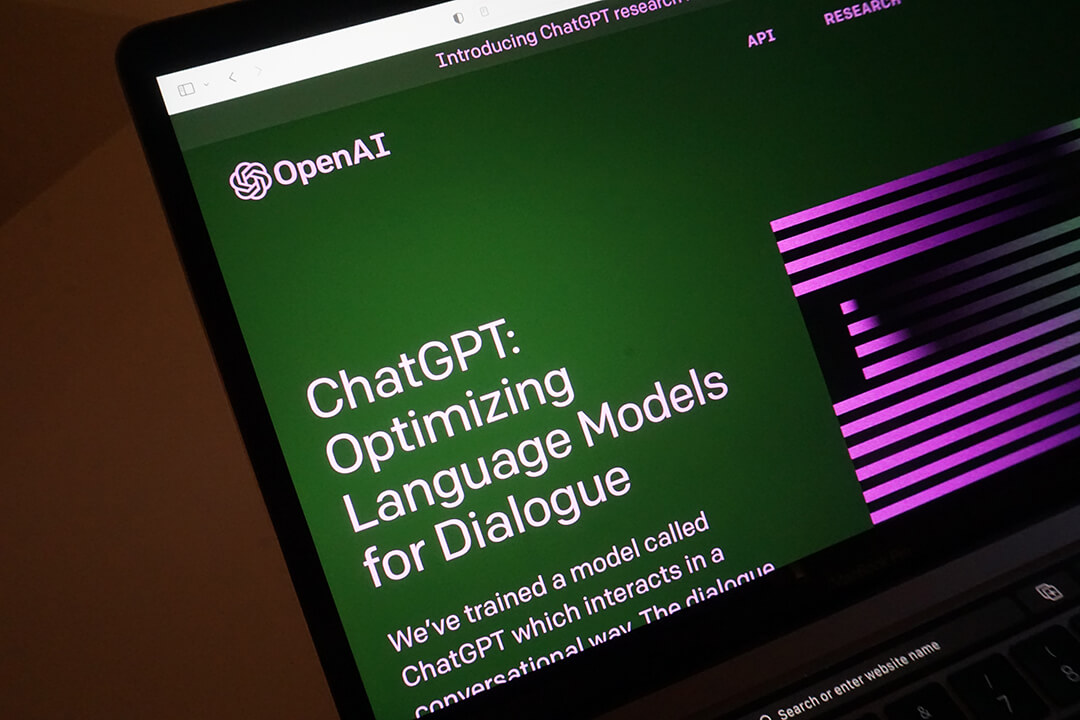AI-powered trip planners have introduced faster and more personalized holiday planning.
The strength of AI trip planners lies in their massive information database. The AI model is trained to act like a travel agent to create personalized itineraries with hotel, restaurant, and sightseeing recommendations in the area.
Even though AI-powered travel tools are still in the early stages of development, they already offer a decent range of personalization. As the technology moves forward, we can expect AI trip planners to become better at learning traveler’s specific preferences and tailoring the itineraries to their needs.
Over a year ago, the launch of ChatGPT has set off a generative AI craze that has since swept the internet with AI-powered tools. In this article, we break down our favorite AI trip planners and how they stand out in travel planning.
Roamaround
Roamaround is an AI trip itinerary planner that acts like a travel assistant on the go. Users simply select their destination and time of their travel. Then the AI generates an itinerary for each day, providing links to guided tours that they can book right away.
The user flow is uncomplicated with only two steps, and travelers can log in with their Google account to create itineraries. The tool offers different options for guided tours to choose from, and each restaurant recommendation links to the Google Maps business profile to provide details. However, apart from writing additional instructions and clicking the regenerate button, there is little to no room to add personal travel preferences such as budget or specifying the nature of travel.
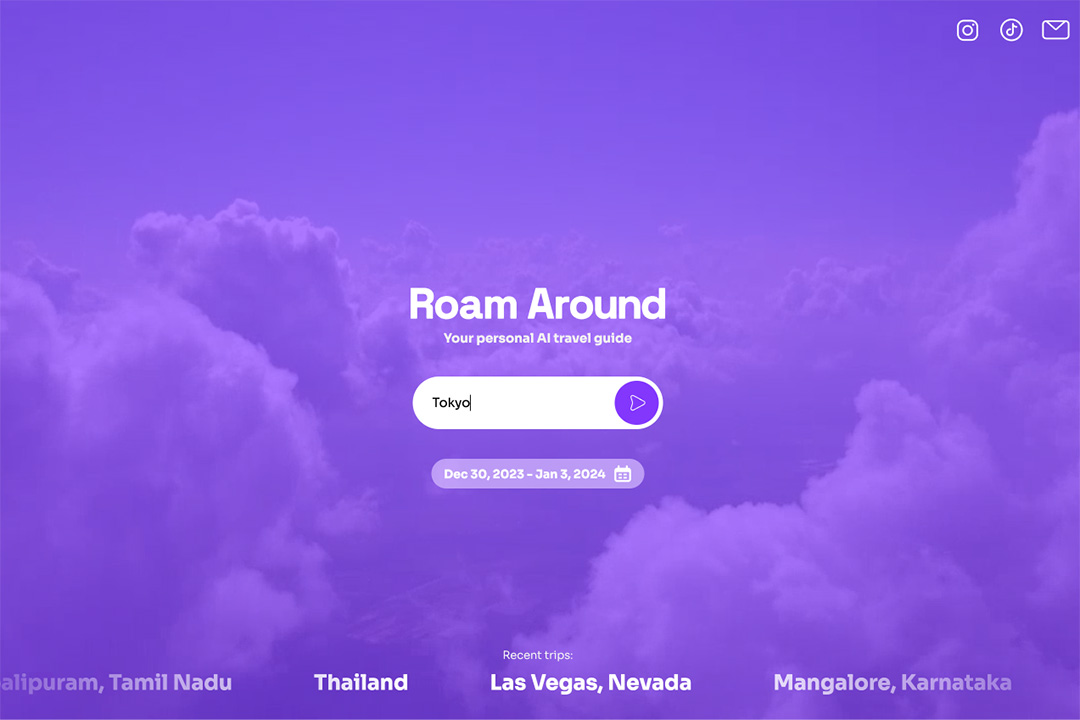
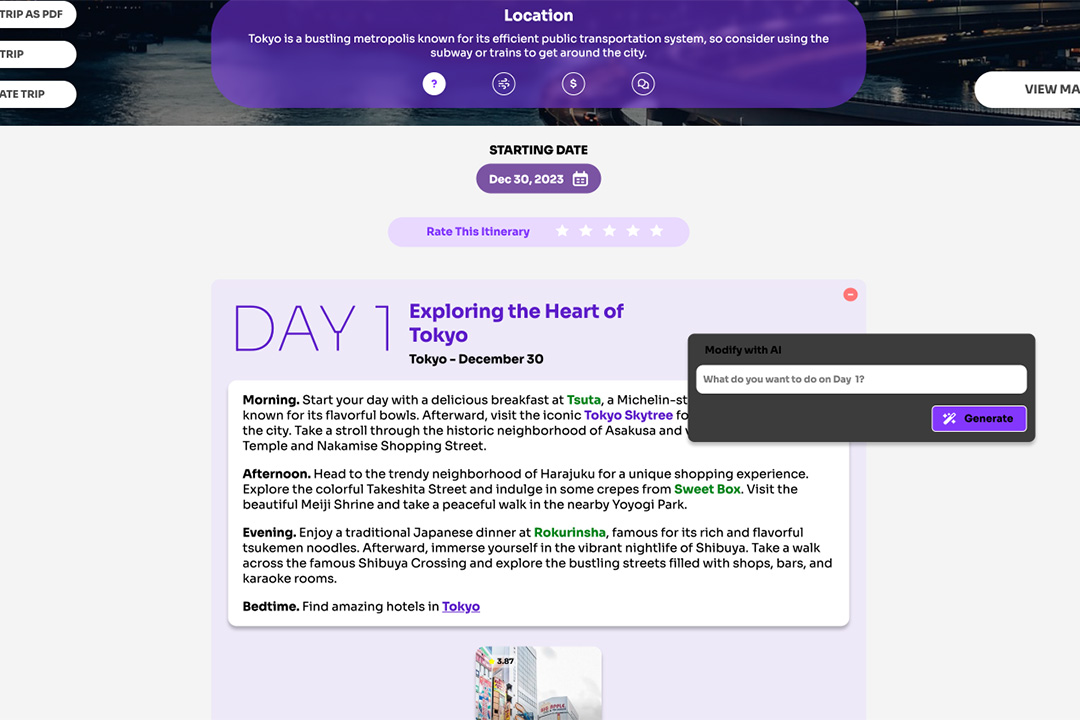
Trip Planner AI
Trip Planner AI is an AI-powered travel planner that creates detailed itineraries based on the pre-filled preferences. Users specify their trip goals such as number of people traveling, budget range and then add special requests for the AI to take into account. Then they are asked to select what type of activities they are interested in and choose how busy they want to be.
The trip plan also includes links that redirect the users to tour booking websites such as GetYourGuide or Tiqets that let them secure their spot in advance or skip the queue. The AI-generated itinerary features details such as the estimated time needed to go from one place to another and price range of each recommended spot. However, Trip Planner AI does not yet offer hotel or flight bookings through OTAs and focuses more on listing down activities.
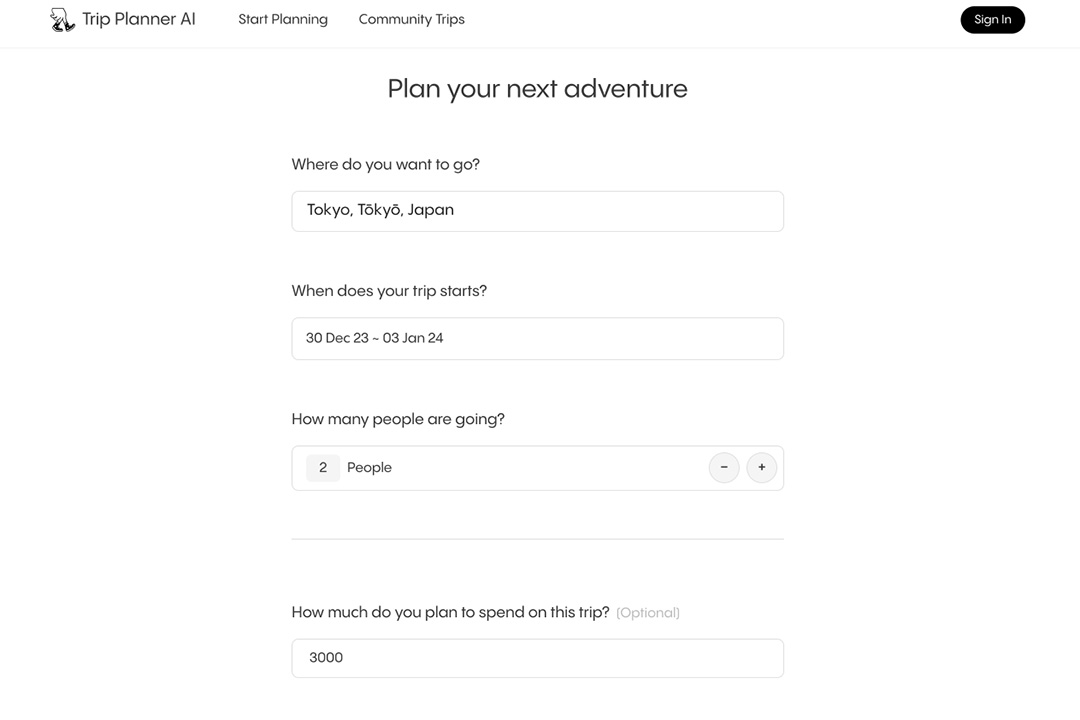
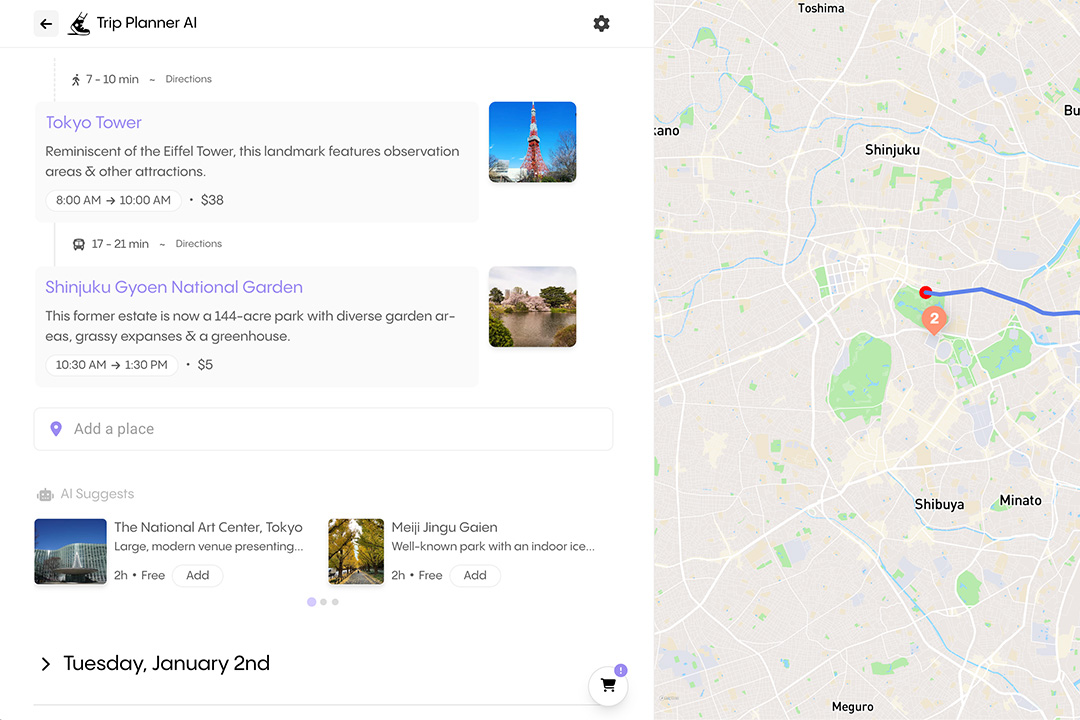
Wonderplan
Similar to Trip Planner AI, Wonderplan is a free AI trip itinerary planner that creates personalized itineraries based on the traveler’s unique needs. First, users select their preferences including the destination, trip duration, number of travelers, budget, and the nature of the trip—whether it's a family getaway, a couple's retreat, an excursion with friends, or a solo adventure.
Detailed personalization allows users to create custom itineraries based on their goals. Users can then click through to the third-party website to book hotels, tours, and tickets to sightseeing spots. To streamline hotel bookings, Wonderplan redirects users to the Booking.com page featuring the recommended hotels in the area.
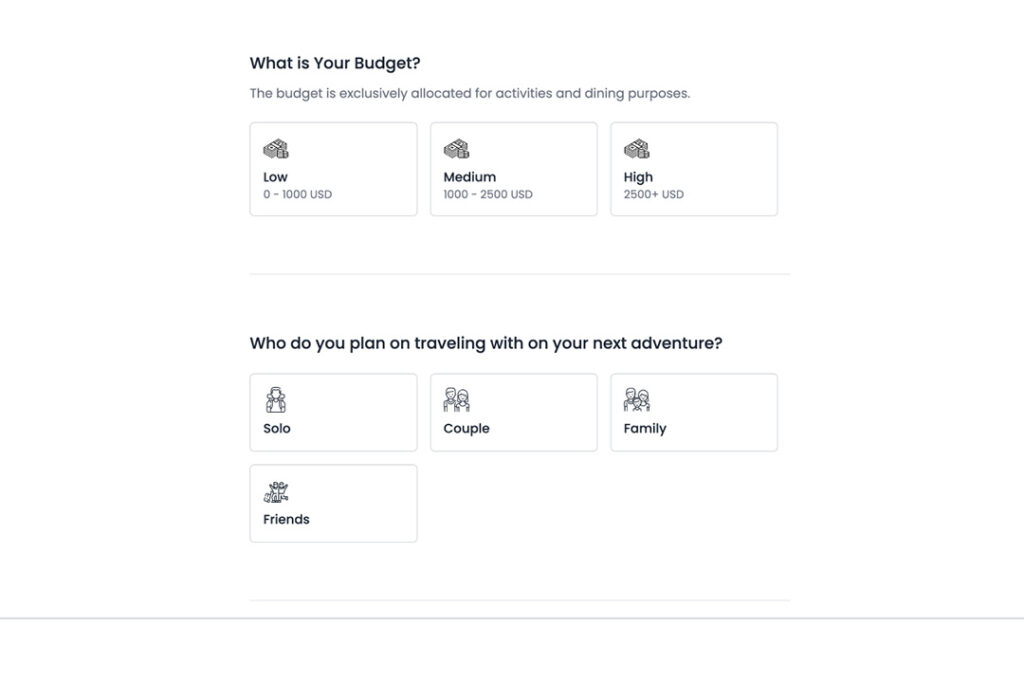
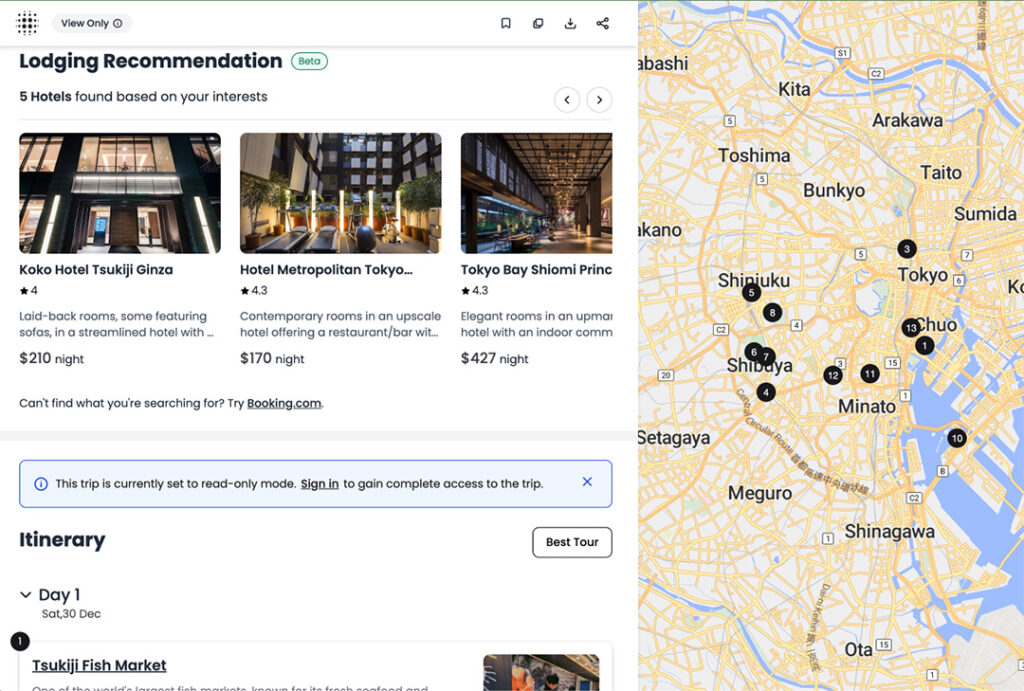
Aiello Voice Assistant (AVA)
Aiello’s hotel-only voice assistant, AVA, is the first voice assistant to use OpenAI’s most advanced language model, ChatGPT 4, to answer queries from traveling guests. AVA is a guest’s personal in-room AI assistant that they can directly speak to. Guests simply use their voice to ask AVA to recommend the best sightseeing spots, shops, or restaurants including details such as business hours and special offers that help them plan their trip.
Large Language Models such as ChatGPT, or Bard can sometimes generate untrue information. This is an ongoing problem with AI that could spoil the guest’s travel plans by providing wrong information about business hours or addresses. To avoid this problem, the Aiello team has developed a mechanism to fact check the ChatGPT output to ensure that AVA’s information output is correct, so that the guests can truly rely on their in-room technology when creating personalized itineraries.
ChatGPT Plus
The most popular AI technology, ChatGPT, can answer a wide range of queries and assist you with various tasks including travel planning. Similar to other large language models such as Bard, ChatGPT was not designed for travel planning. Therefore, its output depends on how specific the instructions from the user are or how it’s prompted.
After inserting our query into the premium version, ChatGPT Plus: ‘I want to travel to Tokyo over the NYE. I'm interested in visiting sightseeing spots, art museums, food and my budget is medium. Send me flight options and hotels. ‘ ChatGPT Plus version retrieved information from Bing Search and included links to the third party OTAs such as Expedia for hotel bookings and Kayak for flights.

Google Bard
Bard is a free-to-use Large Language Model created by Google. Although Bard is, again, not designed specifically for travel and the user has to write specific instructions to get the right information, it does a good job as an AI trip planner.
Its greatest advantage is that even the free version is connected to the internet, which means that it can find travel information in real-time. On top of that, Bard redirects users to Google’s own OTAs, Google Flights and Google Hotels, to complete the booking process.
When we prompted Bard to plan a trip to Tokyo, the model listed down the exact flights and lodging options that we can take including schedule, duration, airline and the price range, redirecting us to Google Flights page to complete the booking. The same thing works for hotels, when prompted to list down accommodation options for our trip, Bard created a list of hotels that we can choose from and directly book on the Google Hotels page.
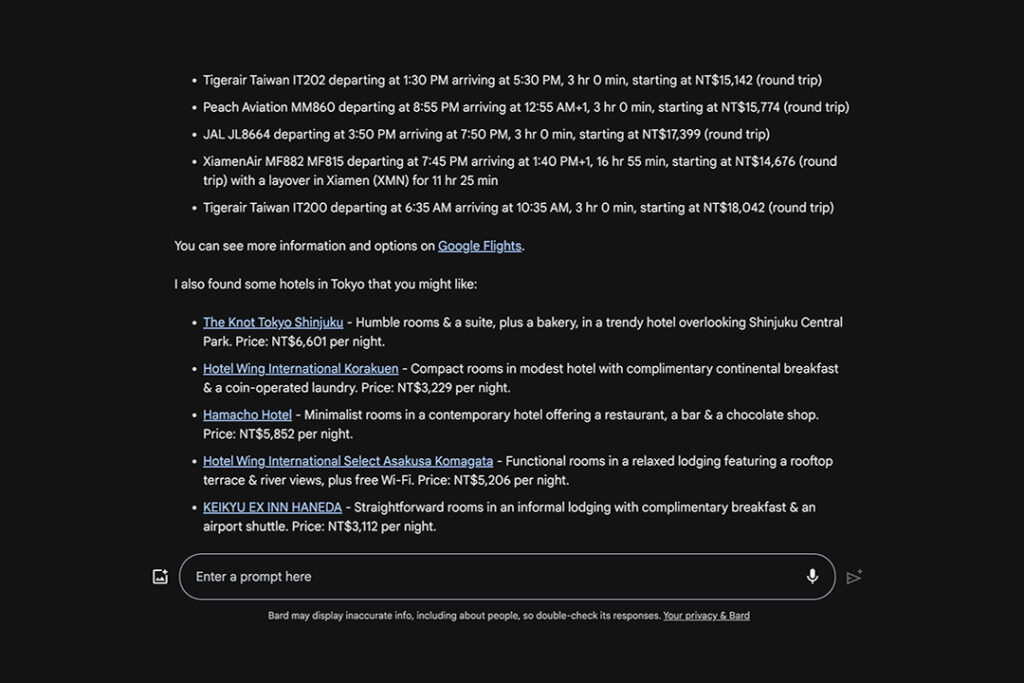
Conclusion
AI trip planners have the potential to significantly streamline holiday planning by creating detailed itineraries that list offers tailored to traveler’s preferences. However, right now the AI language models often generate information that is untrue or outdated. Therefore, it’s important to always cross-check through other resources such as the hotel websites, maps, and online business profiles.
A lot has been going on in the technology world in the past year with AI gradually transforming industries. This shift also applies to the travel sector. For example, Expedia wants to make the role of search engines in travel planning a thing of the past, and in October 2023 Airbnb announced acquisition of Gameplanner.ai. Generative AI will shift how travel and hospitality businesses utilize technology, providing more personalized experiences and uncovering trends faster.

